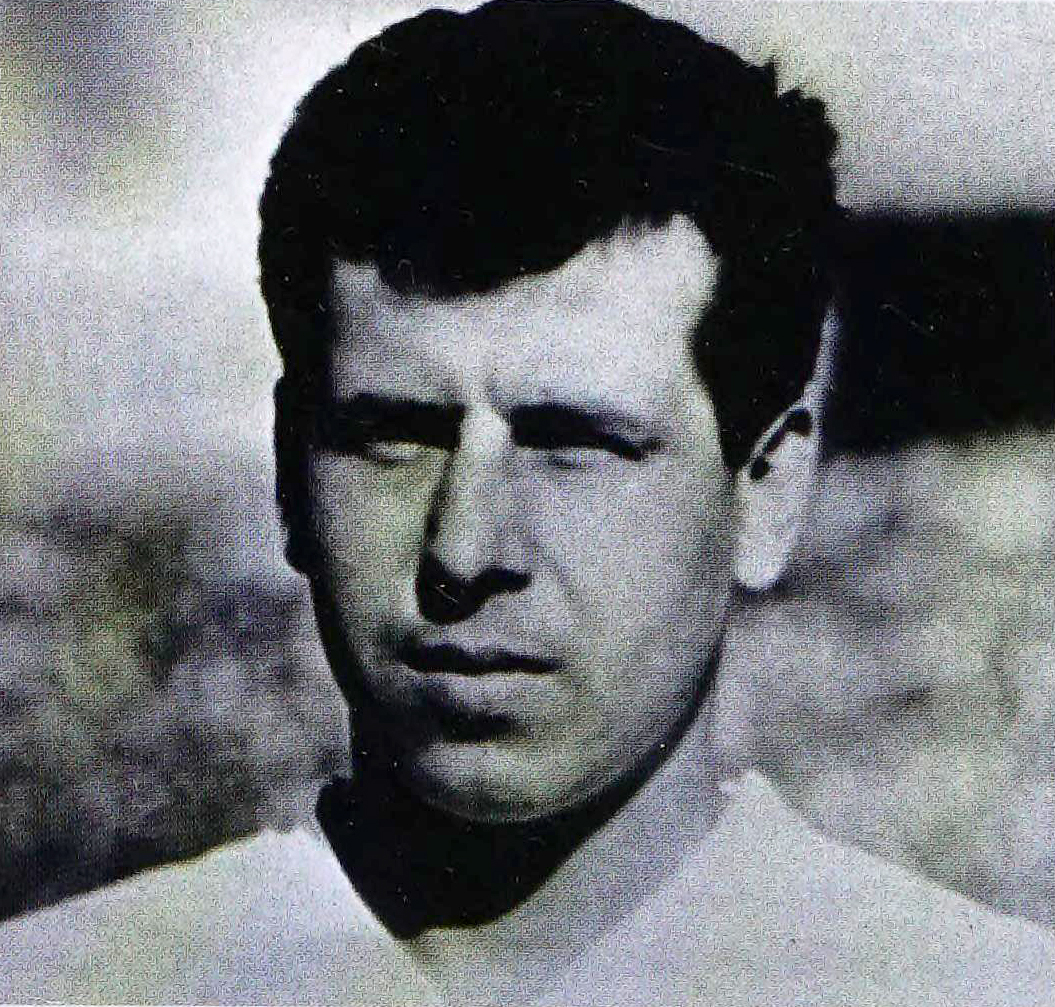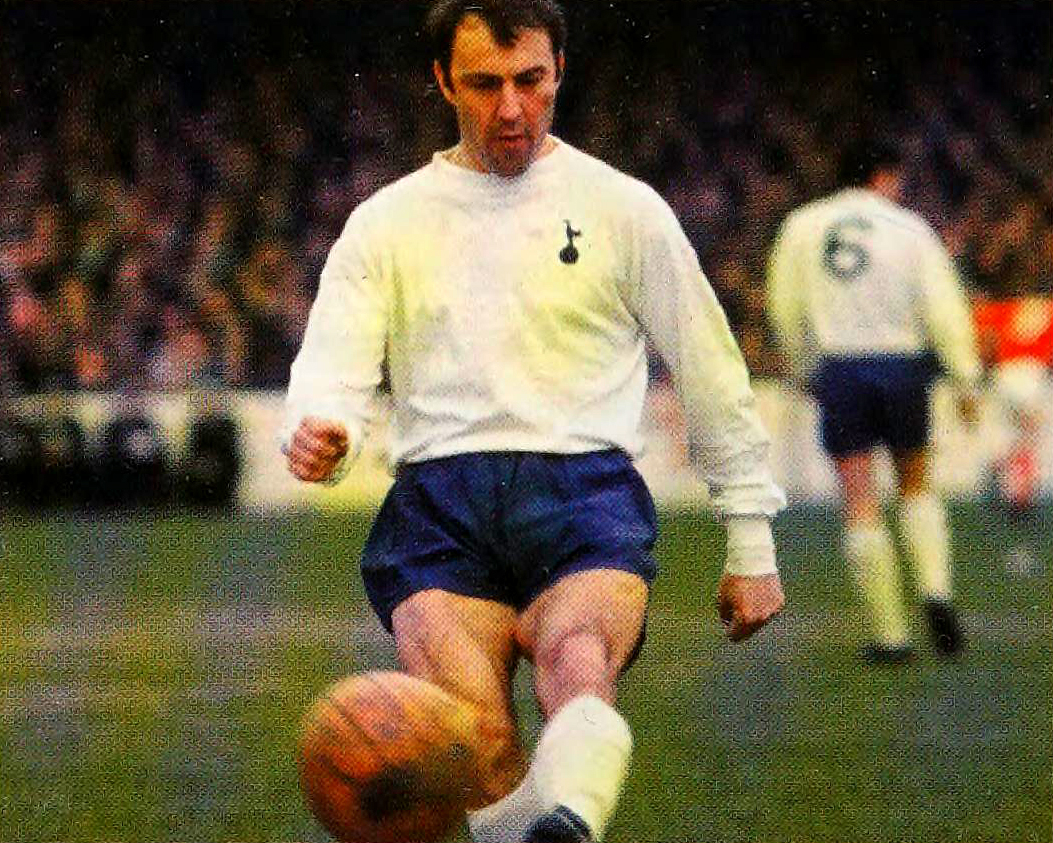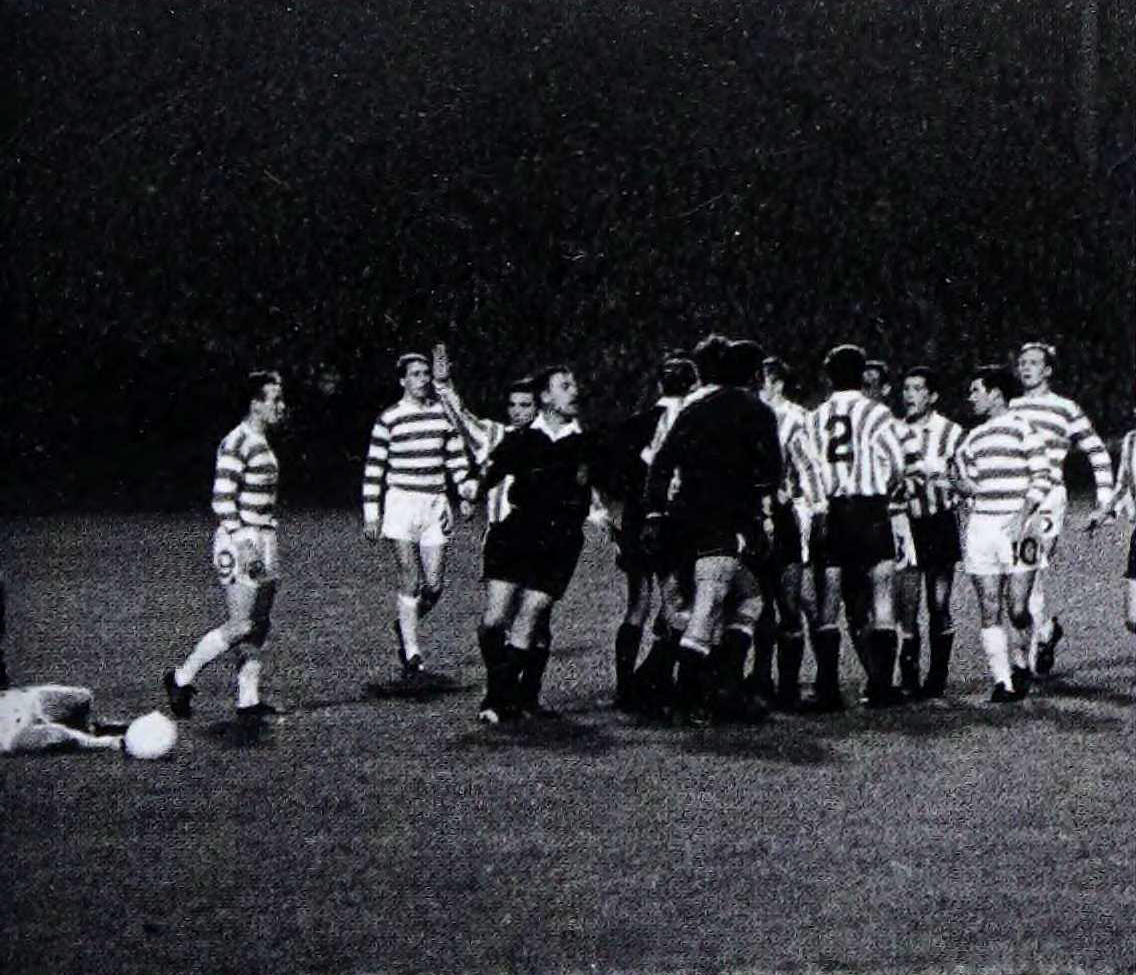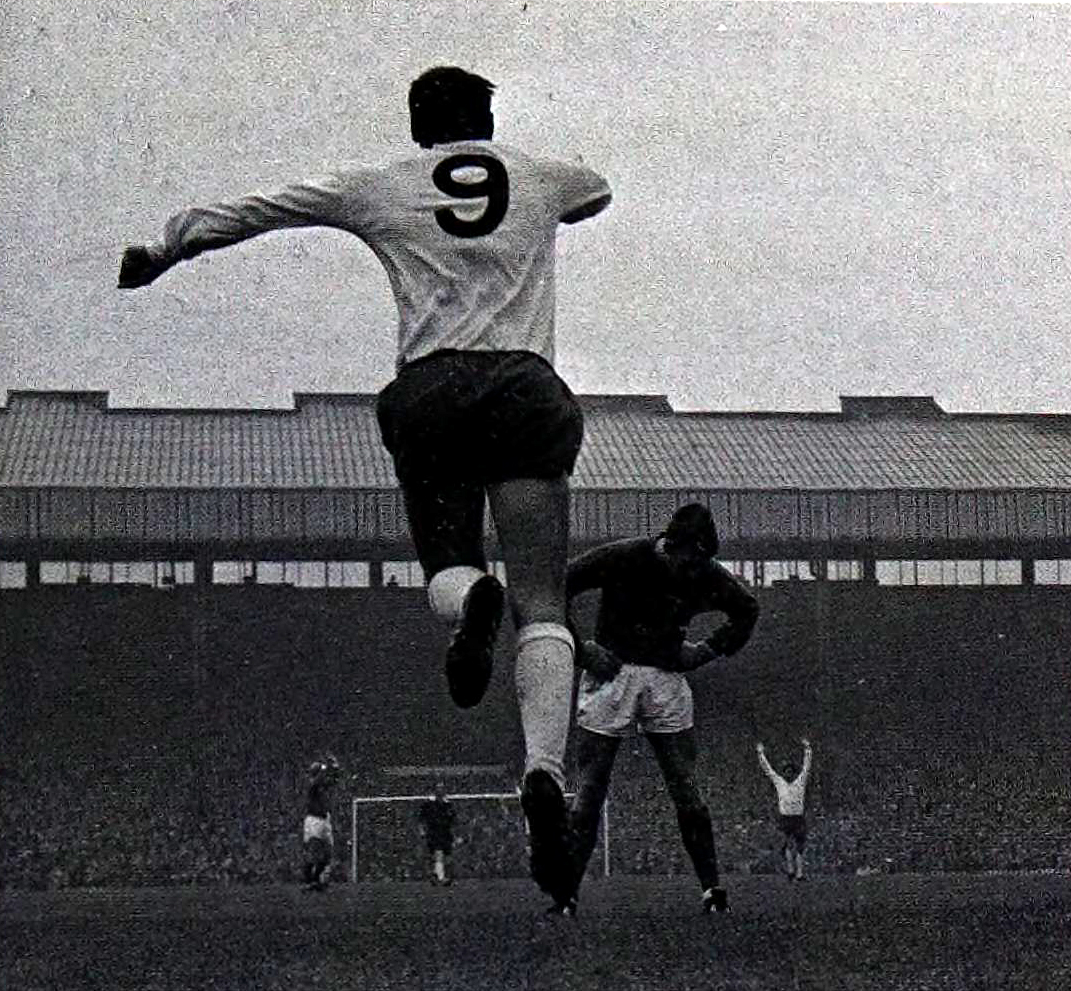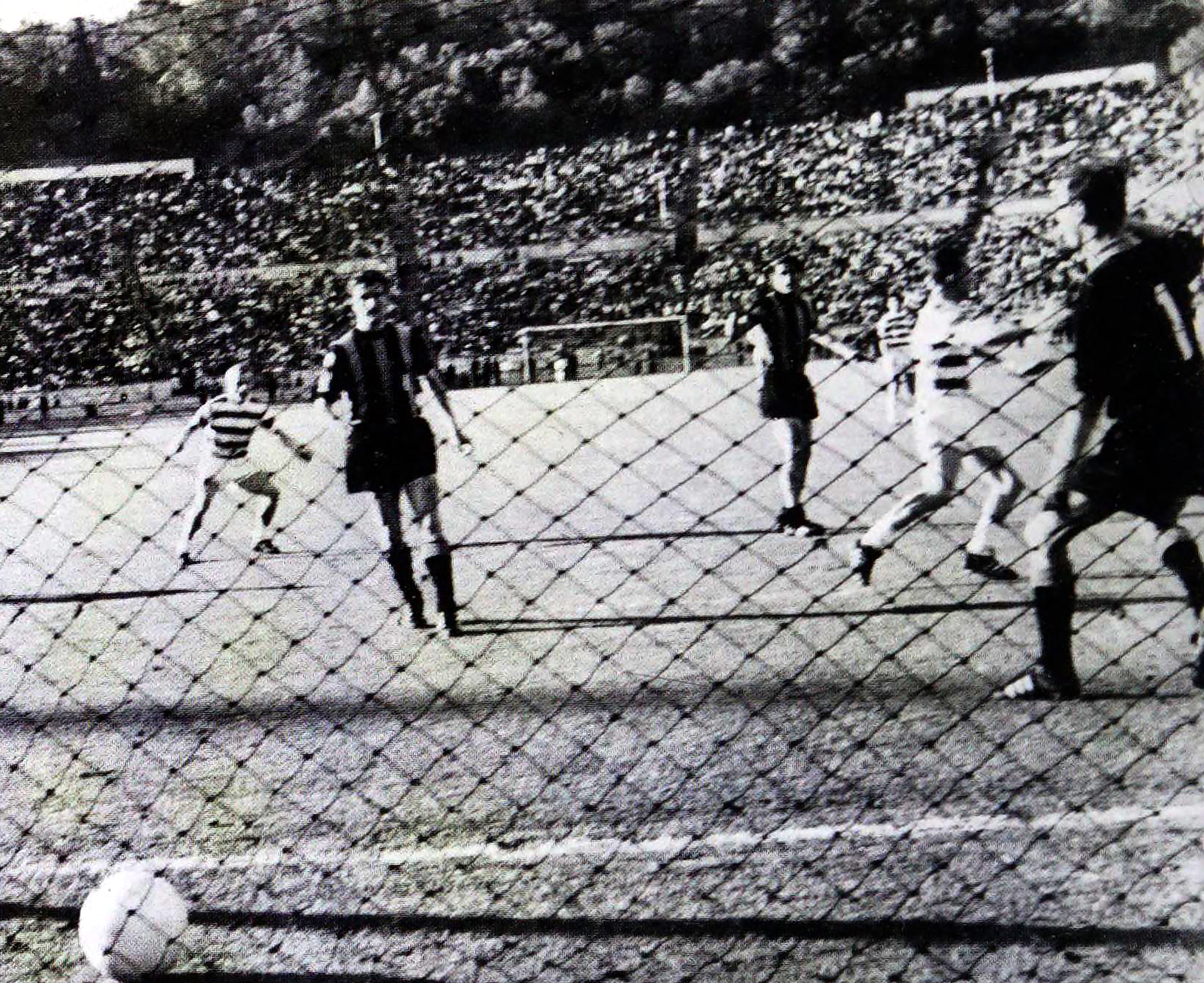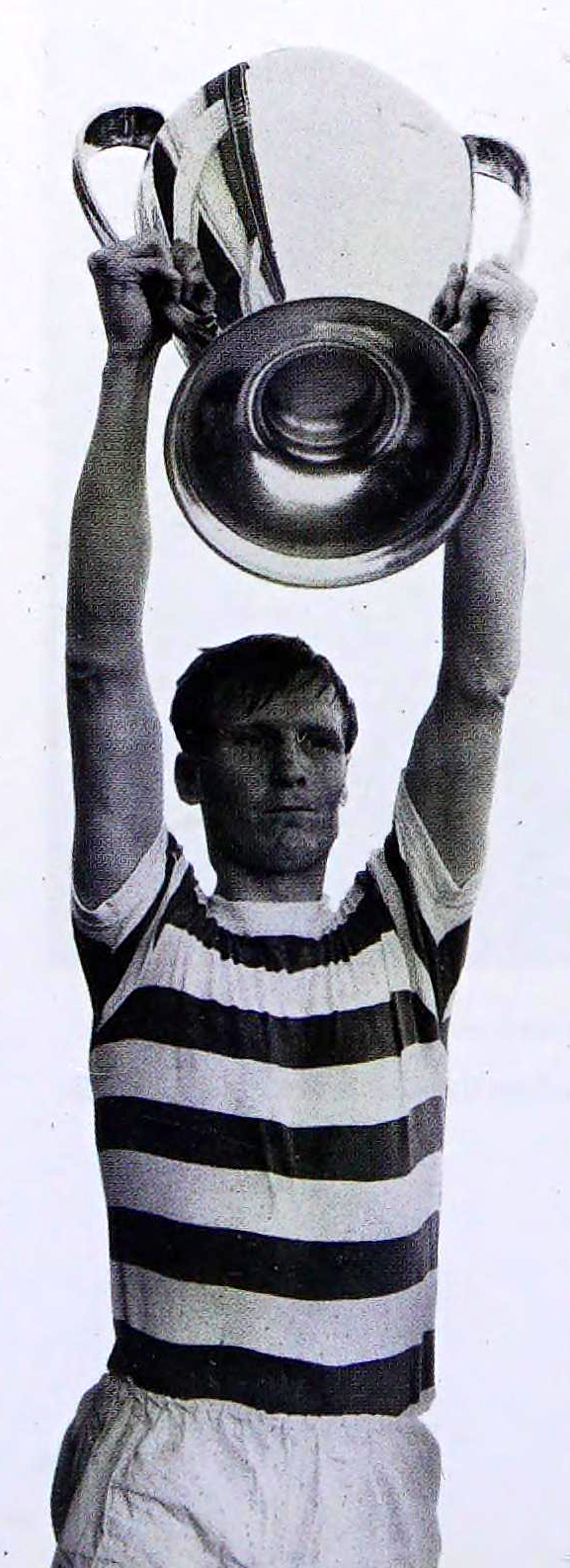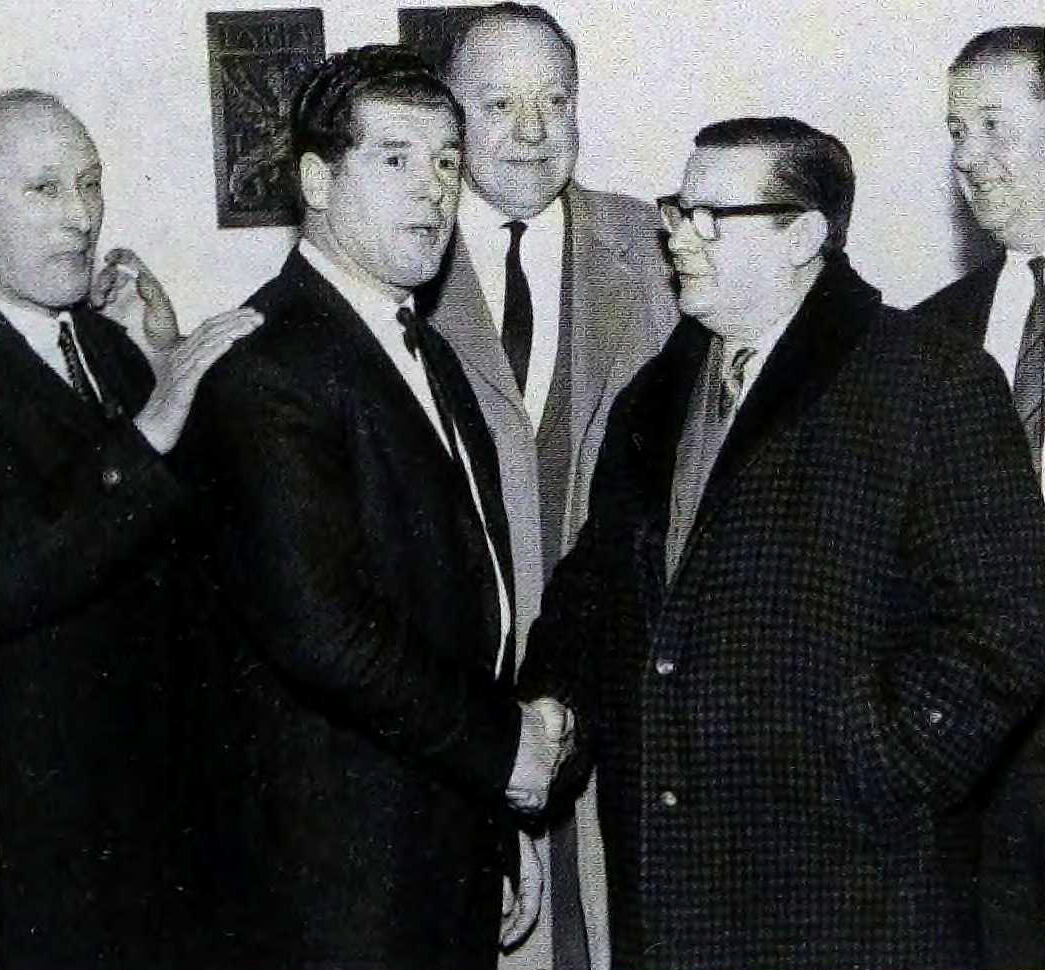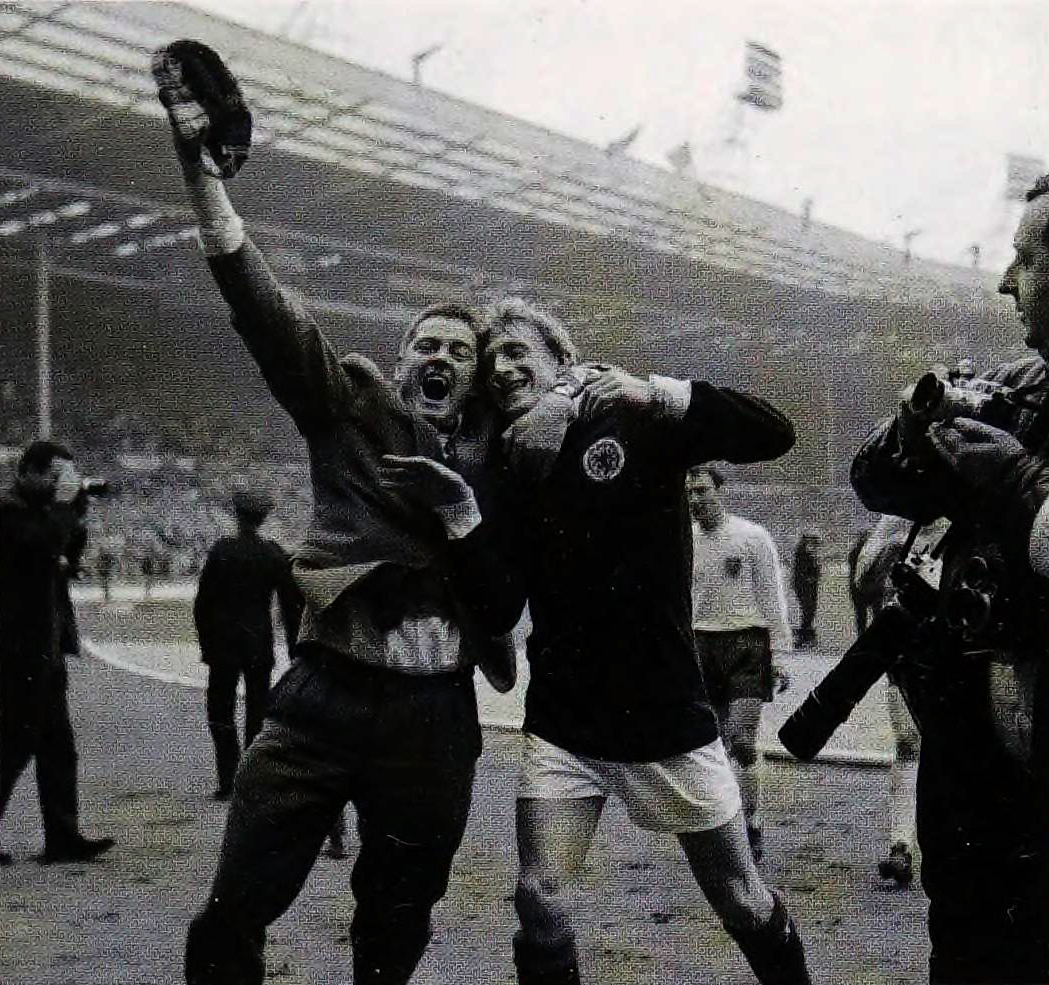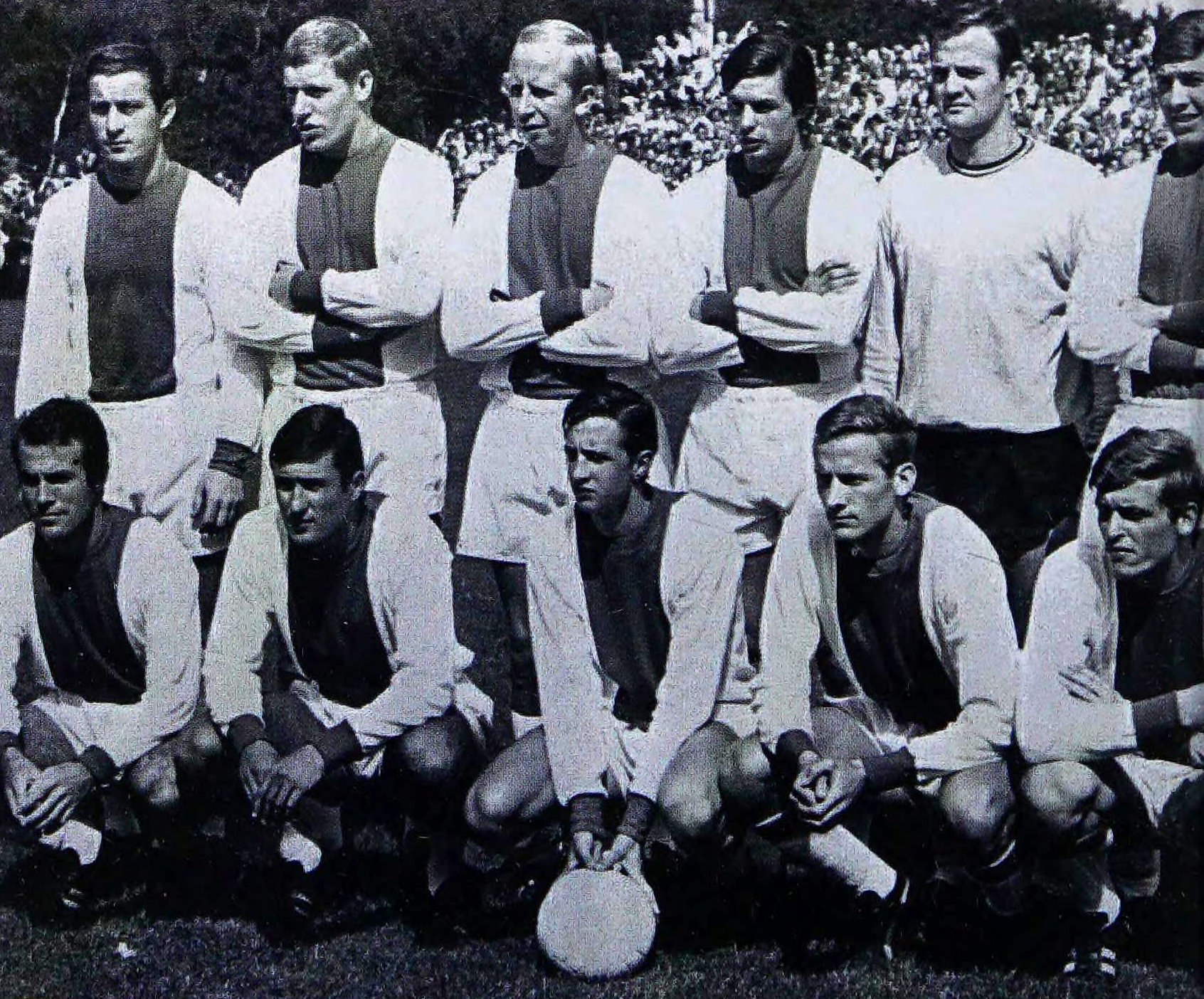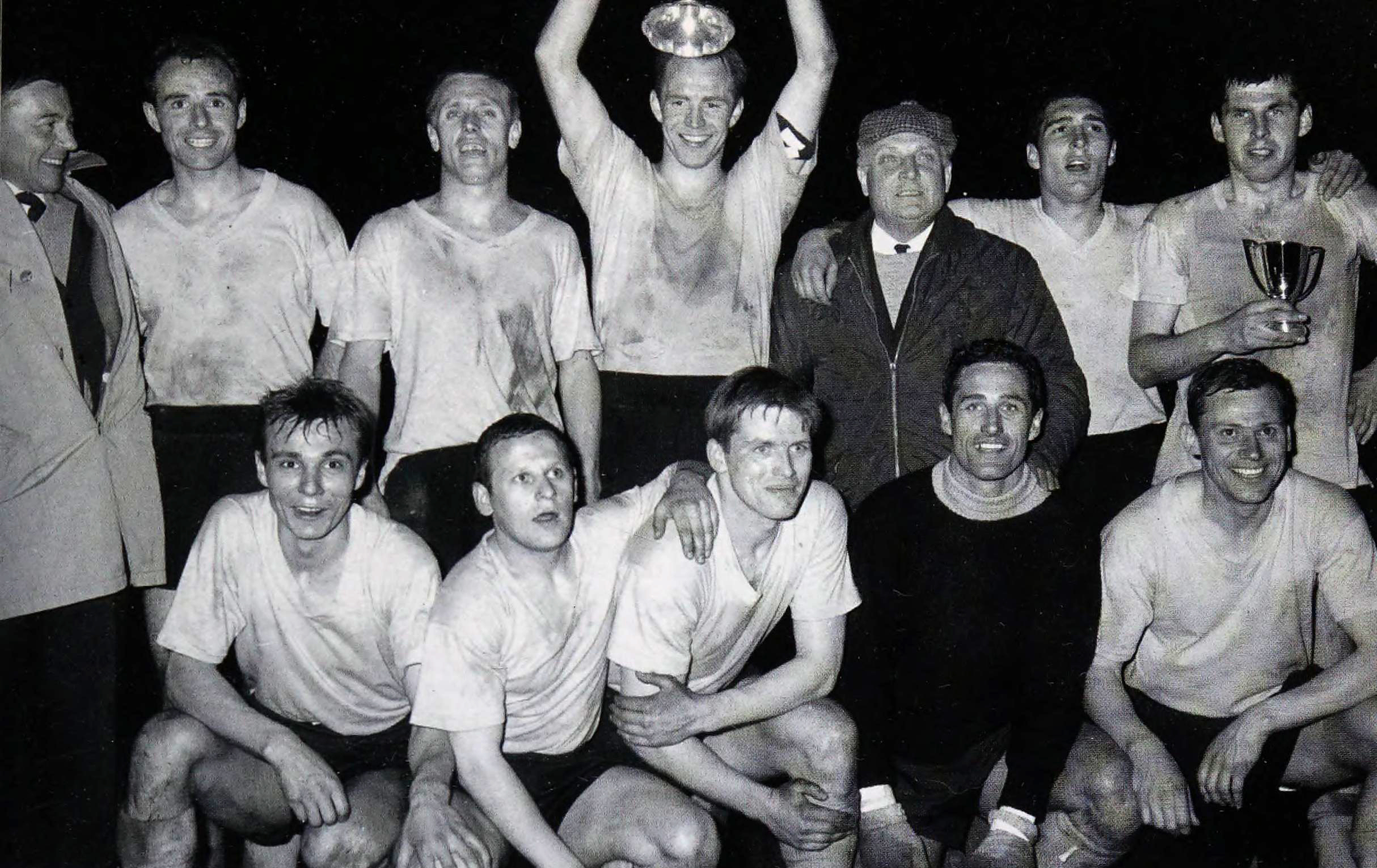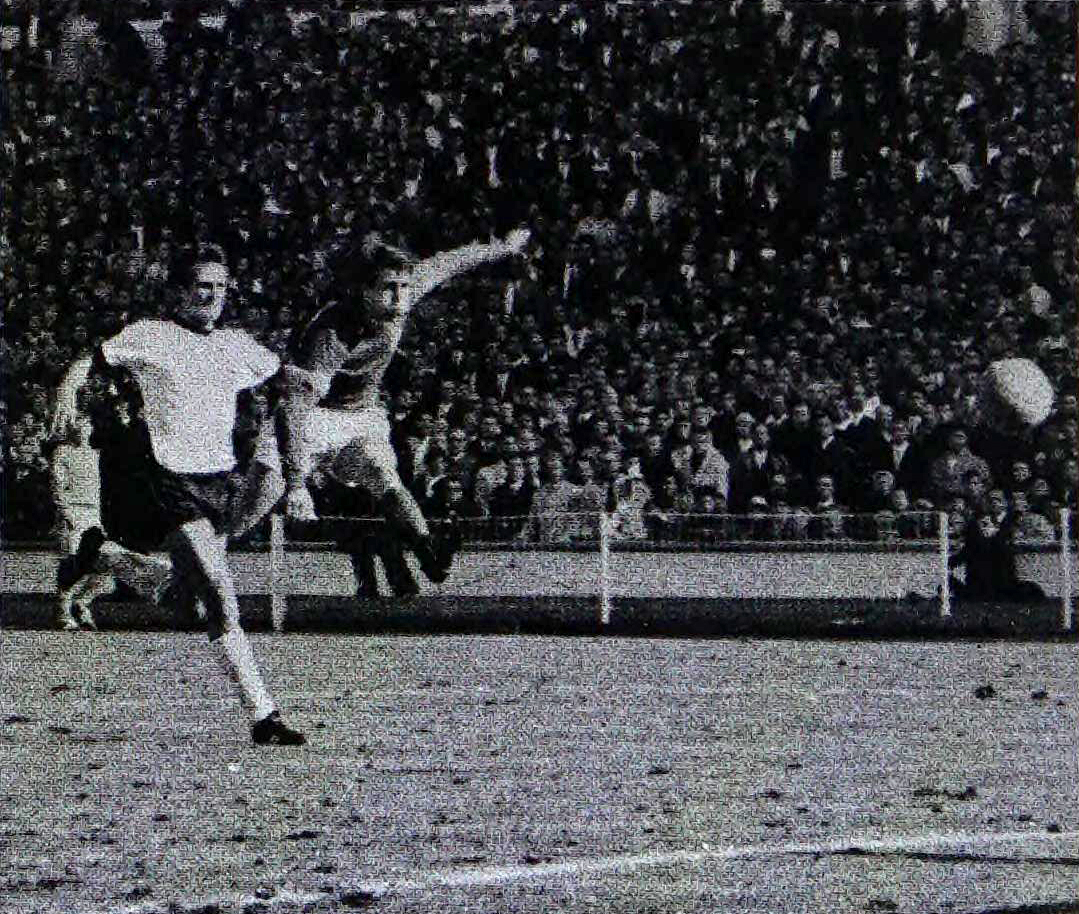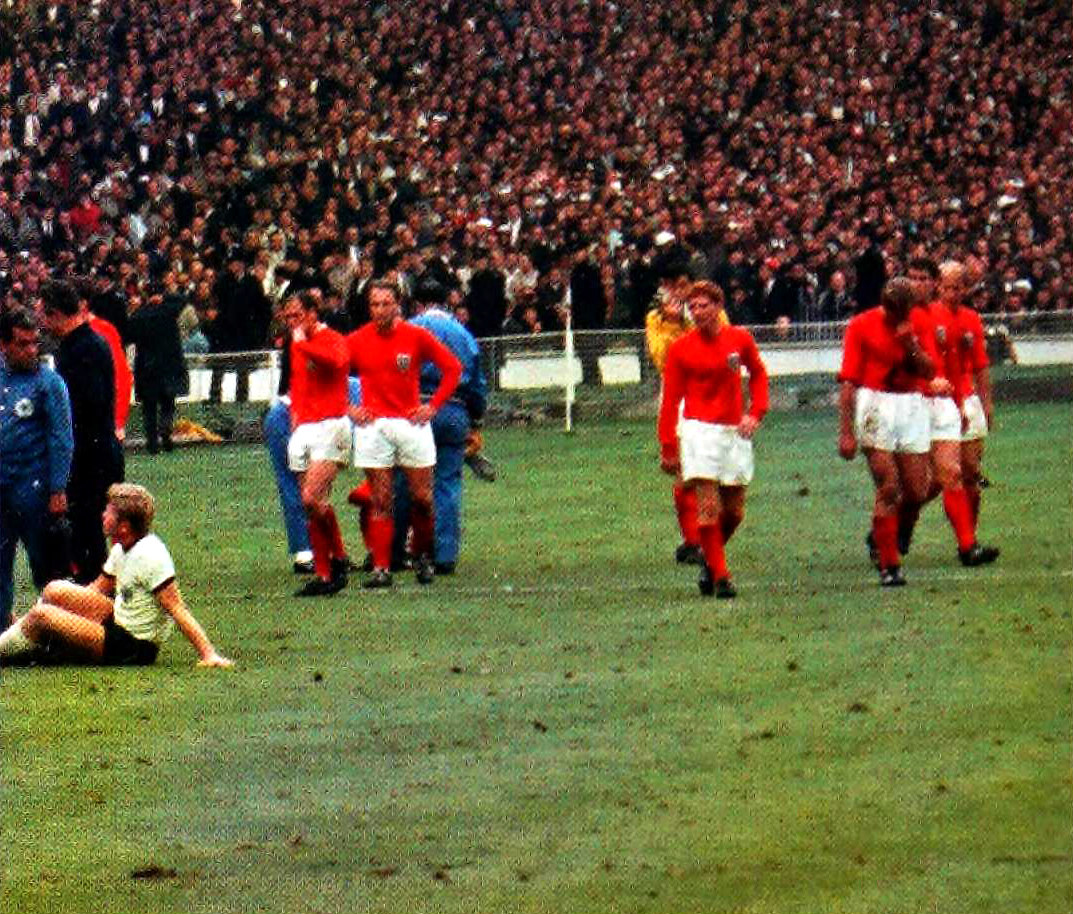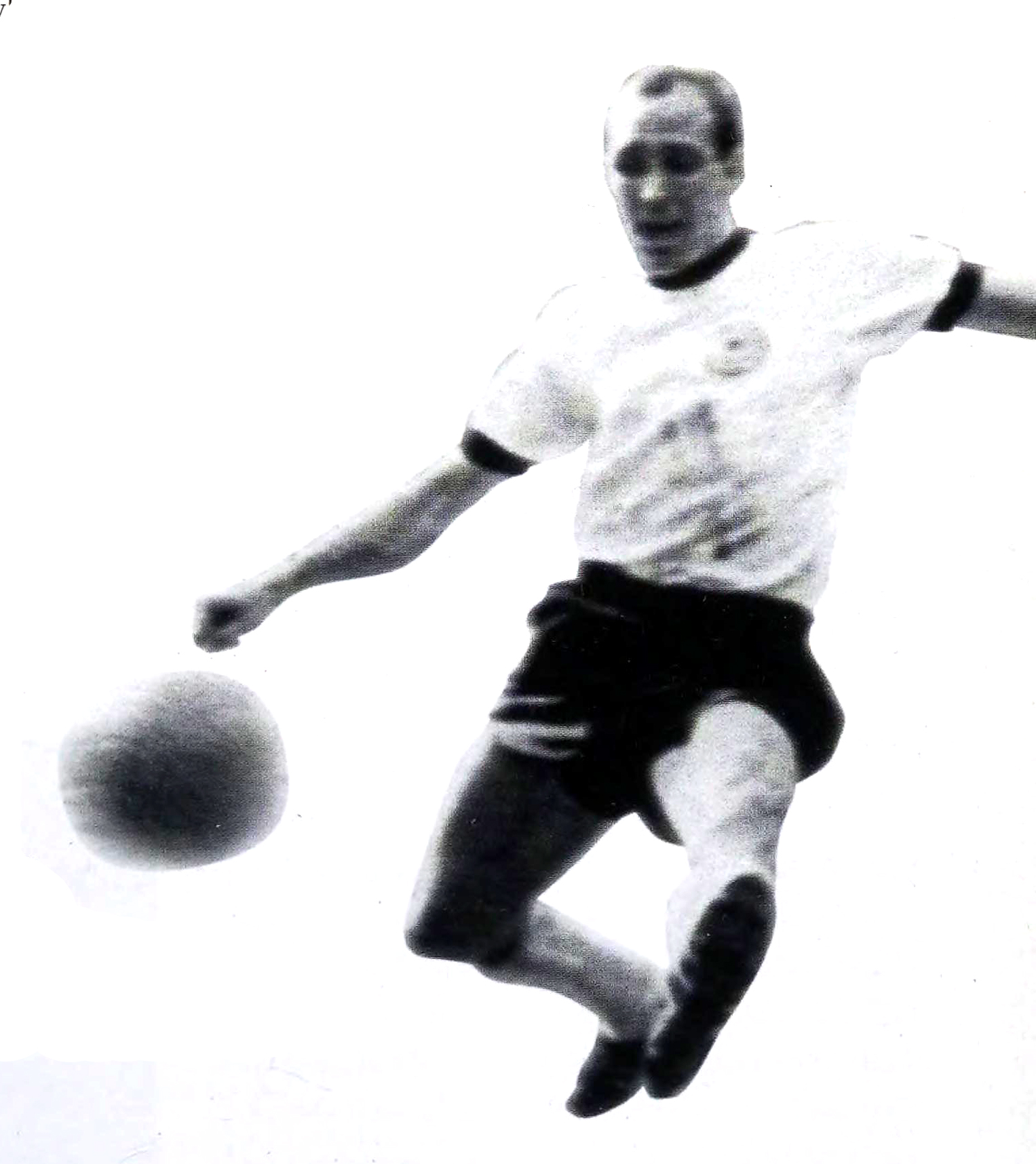2023-04-26
Nr. 445
GREAVES IS TOPS-YET AGAIN (1967)
In 1966-67 Jimmy Gre_aves, orre of English football’s most naturally gifted strikers, was once again the English Football League’s leading goal scorer with 25 strikes in 38 matches. Ironically Greaves’ sparkling form for his club Tottenham Hotspur coincided with his final appearance in an England shirt, in a narrow win over Austria. However, Greaves’ goal-scoring prowess did not propel Spurs to an all-conquering season. With Greaves and fellow striker Alan Gilzean in form Spurs were favourites for a repeat of the 1961 League and Cup double season and although they won the FA Cup in 1967, the team came only third in the League and didn’t make an impression in the European Cup Winners’ Cup.
Jimmy Greaves strike ratio was enviable. He turned out 321 times for Tottenham Hotspur between 1961-1970 and scored 220 goals.
2023-04-25
Nr. 444
VIOLENCE DOGS INTERCONTINENTAL CUP (1967)
International soccer relations hit a new low with five players sent off in an Intercontinental Cup match between European Cup winners Celtic and South American champions Racing Club of Argentina. In a torrid night at Hampden Park, Glasgow, on 18 October foul tackles flew and tempers flared in a volatile night that showed the seamier side of football. The Argentinians won 1-0 over two legs. The match had further ramifications as the competition became dogged by foul play throughout the late 1960s and indeed the reputation of the world club championship became so tarnished that by the 1970s same European teams refused to take part.
Celtic’s Jimmy Johnstone receives attention from trainer NeiI Mochan as Celtic players surround the referee during the ill-tempered game.
2023-04-24
Nr. 443
GOALKEEPER TURNS GOALSCORER (1967)
Northern Ireland international goalkeeper Pat Jennings could not have picked a better stage to open his goal-scoring account. He chose the traditional seasonopening showpiece Charity Shield match to score a historic goal for his FA Cup-winning team Tottenham Hotspur against League champions Manchester United. Jennings’ amazing kick upfield from his own goal area gave Spurs a 3-3 draw, but, although he was a powerful kicker, his punt was grabbed by a strong wind. This bamboozled the Manchester United defence and left United goalkeeper Alex Stepney embarrassed as the ball eluded his grasp and dropped into the net 80 yards from where Jennings had launched it.
Alan Gilzean of Tottenham celebrates as United goal keeper Alex Stepney looks dejected at being beaten by Jenning’s speculative punt.
2023-04-21
Nr. 442
CELTIC’S ‘LIONS’ ROAR (1967)
A shot deflected home by Steve Chalmers claimed the European Cup for a Scottish side for the first and, to date, only time on 25 May 1967. Celtic became the first British side to win the trophy when they beat Inter Milan 2-1 in front of 45,000 people in Lisbon. The narrow margin of the win disguised the attacking supremacy of the Celtic team, a performance which won them the title ‘Lions of Lisbon’.
Celtic, whose players all came from within a 30-mile radius of Glasgow, were a goal down to a penalty inside eight minutes, but manager Jock Stein ordered an all-out attack. The Italians went into familiar deep defensive mode and were saved by the heroics of goalkeeper Sarti and the woodwork. The breakthrough came with a goal by rampaging full-back Tommy Gemmell, before Chalmers’ touchingin of Bobby Murdoch’s long-range shot won the match. Delirious Celtic fans invaded the pitch and many players lost their shirts to souvenir hunters.
Celtic’s Stevie Chalmers turns away after scoring the winning goal past Inter goalkeeper Sarti.
Captain Billy McNeill lifts the Cup on a famous night in Lisbon.
2023-04-20
Nr. 441
THIRD LANARK DIES (1967)
Two events in the month of April fatally injured Scottish Second Division side Third Lanark. lts Cathkin Park ground in Glasgow recorded its lowest ever attendance – 297 people in a game against Clydebank – bofare a 5-1 defeat to Dumbarton ended the involvement in soccer of the club nicknamed the ‘Hi Hi’ as a senior professional outfit. Ironically the Thirds were just five years short of their centenary. A subsequent Baard of Trade investigation revealed core problems, such as constant player squabbles and bitter internal wrangles for power among board members. A liquidator was appointed and a club which never really made the big time in Scottish football was no more.
Third Lanark chairman James Reilly welcomes new manager Bobby Shearer in 1967. It wasn’t enough to save the club from going under.
2023-04-19
Nr. 440
SCOTS CLAIM ‘WORLD CHAMPION’ STATUS (1967)
Fanatical Scotland supporters claimed unofficial world champion status for their country when they humihated the ‘Auld Enemy’ England in a 3-2 win at Wembley on 15 March. England was on a high after winning the World Cup in 1966 and the Scotland setback was their first defeat since becoming world champions. The Scots’ hero was midfielder Jim Baxter who ran the show, mocking the English team with all manner of trickery and cheeky moves. Scotland scored through Denis Law, Bobby Lennox and Jim McCalliog in front of a crowd of 99,063, swelled by a big and vociferous ‘Tartan Army’ which had travelled from north of the border.
Scotland’s Den is Law is congratulated by an ecstatic Scotland fan after his team’s 3-2 victory over the reigning World Champions.
2023-04-18
Nr. 439
AJAX WRECK LIVERPOOL’S EUROPEAN DREAM (1966)
In the 1966-67 season a 19-year-old Johann Cruyff gave a due as to his future influence in football when his contribution to a European Cup second round match helped to destroy Liverpool. Cruyff’s Ajax side overwhelmed English
champions Liverpool in a 5-1 first-round win played in foggy weather conditions at the Olympic Stadium, Amsterdam, on 7 December. Liverpool, were unable to haul back the deficit in the second leg at their home ground and could only manage a 2-2 draw, so their European Cup debut ended with a defeat on a 3-7 aggregate.
In 1966 Cruyff, who was later to play a pivotal part in the Dutch ‘total football’ system of the 1970s, already had a Dutch championship medal and Holland international caps to his name.
Inspired by the young Johan Cruyff Ajax were just em barking on their most successful period in the club’s long history.
2023-04-17
Nr. 438
DORTMUND RESTORE GERMAN PRIDE (1966)
A 2-1 win in extra-time at Hampden Park, Glasgow, did more than take the 1966 European Cup Winners’ Cup for Borussia Dortmund. The victory over Liverpool gave a West German team a major European trophy for the first time and also restored German pride after TSV 1860 Munich had lost in the previous year’s final to West Ham. German teams were major players in the European Cup Winners’ Cup every year between 1965 and 1968 with varying degrees of success. Bayern Munich retained it in 1967, but Hamburger SV lost in the 1968 final.
Jubilant Borussia Dortmund celebrate. Holding the cup aloft is captain Wolfgang Paul. Standing next to him is manager Herr Multhaup.
2023-03-31
Nr. 437
AND THEN IT WAS ALL OVER (1966)
BBC commentator Kenneth Wolstenhome could not have imagined that an off-the-cuff comment would become part of soccer folklore. England striker Geoff Hurst’s hat-trick finale to the 1966 World Cup final inspired one of the most famous pieces of commentary. As the West Ham player raced clear of the chasing West German defence some fans thought the final whistle had gone and dashed onto the pitch to celebrate a 3-2 England win. Wolstenhome reported, «Some people are on the pitch. They think it’s all over.» Then, after pausing as Hurst blasted the ball home again for a 4-2 win, Wolstenhome confirmed it with the words, «It is now.»
There were no complaints about Geoff Hurst’s emphatic finish to seal his hat-trick. The fourth England goal ended the German challenge.
2023-03-30
Nr. 436
RAMSEY’S STIRRING WORDS (1966)
England’s controversial third goal was 100% proof of manager Alf Ramsey’s inspirational powers. Striker Geoff Hurst was just one England player to have taken Ramsey’s motivational words to heart and his goal set deflated English players back on a World Cup-winning path after German Wolfgang Weber had equalized with just 15 seconds of the first 90 minutes to go. With 30 minutes of extra time looming, and with the calm demeanour of an Enghsh gentleman, Ramsey prepared his team for more effort in a game they thought they had won. He firmly told them they had already won it once; but they had the skills to go out and do it again. He is quoted as saying, «You let it slip. Now start again.»
After conceding such a late equalizer Ramsey had his work cut out to motivate players who thought they had the match won in normal time.
2023-03-29
Nr. 435
GOAL LINE CONTROVERSY ENRAGES GERMANS (1966)
At the height of the Cold War, it was somewhat unusual to have a kind word for a Russian, but the England team did in a goal controversy that was to rage into the 21st century. On 30 July in the rooth minute of the 1966 World Cup final, and with the scores at 2-2, England midfielder Alan Ball crossed for striker Geoff Hurst, homing in on the near post, to hammer a shot towards the West German goal. It struck the underside of the bar, bounced down and then out of the goal – but on which side of the chalk line did it land? The nearest England player to the ball was Roger Hunt who, beheving it to be a goal, wheeled away in celebration, but many thought that he should have stayed to tap the ball back over the line. The furious Germans were adamant it was no goal and Swiss referee Gottfried Dienst was unsure. Enter Soviet linesman Tofik Bakhramov, who was very sure, and the goal was awarded, giving England a 3-2 lead to defend for the next 20 minutes. With television coverage in its relative infancy the action replays of the day failed to prove if the ball had crossed the line or not and even in the computer age 40 years on attempts to ascertain if the ball did indeed cross the line have failed to be conclusive and it remains a major talking point.
Geoff Hurst lashes the ball past Willi Schulz to score England’s highly controversial third goal.

